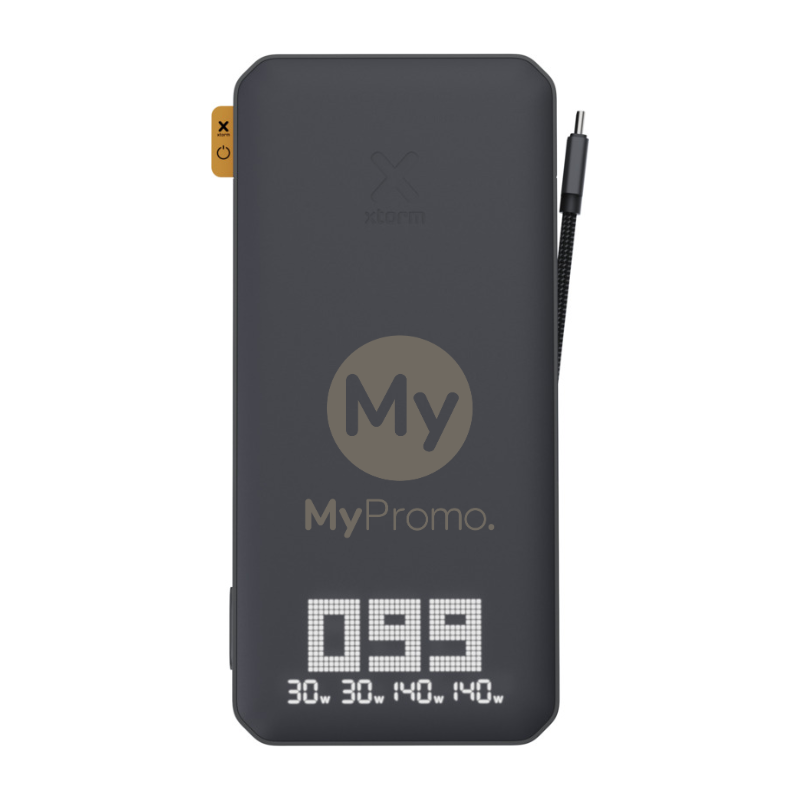ABS-PC
What is ABS-PC?
ABS-PC was developed as manufacturers sought materials that could offer improved performance characteristics over those available from single plastics. ABS brings excellent rigidity and heat resistance, while PC contributes its incredible strength and toughness, even at low temperatures. This synergy results in a composite material that is highly valued across various industries for its balanced properties.
The Making of ABS-PC
The production of ABS-PC involves a specific process that begins with the polymerisation of styrene and acrylonitrile in the presence of polybutadiene. This forms the ABS part of the compound. Separately, polycarbonate is produced through the reaction between bisphenol A and phosgene. The final step is blending these two polymers at a molecular level, usually by melting them together, which ensures that the characteristics of both materials are optimally combined in the final product.
Key Properties and Characteristics of ABS-PC
ABS-PC is renowned for its exceptional blend of properties, which include high impact resistance, good heat resistance, and substantial stiffness and strength. Moreover, it boasts excellent dimensional stability and is relatively easy to machine and fabricate, which makes it an ideal choice for complex parts and components. Its aesthetic qualities are not to be overlooked either; ABS-PC can be manufactured with a smooth finish and can be easily coloured or textured during the moulding process.
Practical Applications of ABS-PC
The use of ABS-PC spans across various fields, including the automotive industry, where it is used for parts like dashboards and bumpers, and in consumer electronics, for components such as laptop cases and phone chargers. In the world of promotional gifts, ABS-PC is prized for its ability to be precision-moulded into intricate shapes, making it perfect for customisable items such as personalised keyrings, durable personalised pens, and even robust phone cases—all personalised to meet marketing needs.
Advantages of Using ABS-PC in Manufacturing
Choosing ABS-PC for manufacturing offers numerous advantages. Its superior durability and resistance to impact and heat allow for the production of long-lasting products. The material's adaptability in design and colouration also enables manufacturers to tailor products specifically to client specifications, enhancing the aesthetic appeal and functional versatility of the final goods.
Comparing ABS-PC with Other Materials
When compared to materials like PVC or pure polystyrene, ABS-PC stands out for its enhanced mechanical properties and better suitability for applications requiring toughness and precision. However, ABS-PC might present some challenges, such as a higher cost relative to simpler plastics and potential issues with sensitivity to certain chemicals and weathering if not properly treated.
In summary, ABS-PC's unique blend of properties from both ABS and PC makes it a material of choice for applications demanding high performance and durability. Its role in the manufacturing of everyday items and specialised products alike underscores its significance in modern industrial practices. Despite some challenges, the benefits of using ABS-PC in manufacturing and promotional products continue to make it a preferred material among professionals in the field.
What are the primary advantages of using ABS-PC in manufacturing?
ABS-PC is favoured in manufacturing for its excellent impact resistance, high heat resistance, and substantial stiffness and strength. These properties make it highly effective for products that need to withstand stress, heat, and impact, making it ideal for applications in the automotive and electronics industries. Its dimensional stability and ease of fabrication also allow for the production of complex shapes and designs, enhancing both the aesthetic appeal and functional versatility of the final products.
How is ABS-PC manufactured?
The manufacturing process of ABS-PC starts with the polymerisation of styrene and acrylonitrile in the presence of polybutadiene to create ABS. Polycarbonate (PC) is separately produced through a reaction between bisphenol A and phosgene. These two polymers are then molecularly blended, typically by melting them together, to optimally combine their characteristics in the final product. This ensures that the final material exhibits the desired qualities of both ABS and PC.
Can ABS-PC be recycled?
Yes, ABS-PC can be recycled, which adds to its appeal in sustainability-focused manufacturing practices. The recycling process requires careful separation and management to maintain the material's properties, as the quality of the recycled material heavily depends on preventing contamination with other plastics or substances.
What are some common uses of ABS-PC?
ABS-PC is extensively used across various industries due to its robust properties. In the automotive industry, it is used for parts such as dashboards and bumpers that require durability and heat resistance. In consumer electronics, it serves as an ideal material for protective casings like laptop shells and mobile phone chargers. Additionally, its ability to be moulded with precision makes it popular for creating personalised and durable promotional items such as branded keychains, promotional pens, and custom phone cases.
How does ABS-PC compare to other plastics like PVC or pure polystyrene?
Compared to other plastics such as PVC or pure polystyrene, ABS-PC stands out due to its superior mechanical properties. It is tougher and more suitable for precision applications that require high impact resistance and strength. However, it typically comes at a higher cost and may require specific treatments to enhance its resistance to chemicals and environmental conditions, such as UV exposure and weathering. This makes ABS-PC a more specialised choice where its unique properties are necessary for the application's success.


